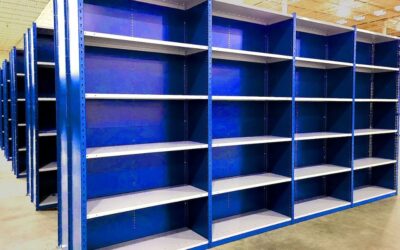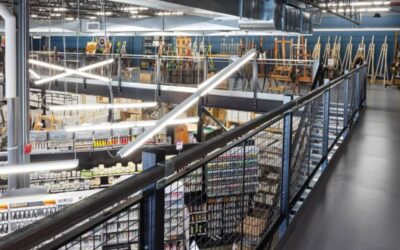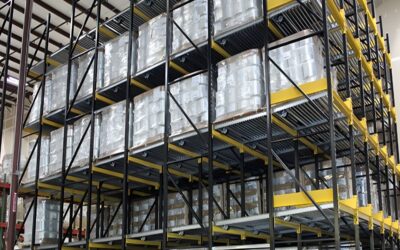Top Advantages of Choosing a Hydraulic Pallet Jack Over Manual Models

In the world of fast-paced transportation and warehousing, manufacturing efficiency is essential. The hydraulic pallet jack represents one of the biggest advancements in accessories. These gadgets are preferred by many firms due to their numerous benefits over manual ones. This article examines the many advantages of hydraulic forklifts, emphasizing how they boost output, security, and general effectiveness.
Increased Lifting Power and Efficiency
When it comes to lifting power, hydraulic forklifts outperform manual models. They make it easier for operators to manage larger loads, which promotes more effective transportation inside warehouses. The operator must exert less effort because the hydraulic system supplies the requisite force. As a result, companies are able to transport more things in less time. Furthermore, this increased efficiency results in faster operations and improved overall workflow.
Reduced Physical Strain on Operators
The capacity of hydraulic forklifts to lessen operator physical strain is a significant benefit. Due to the high physical demands, traditional manual pallet jacks can cause fatigue and even collapse. However, hydraulic machines require less physical effort from users. This ergonomic design reduces the risk of injury. Furthermore, it provides a healthy work environment alongside the use of a steel shelving system. Employee motivation and comfort also increase, which raises morale generally.
Enhanced Stability and Safety Features
The most important aspect of any warehouse is security. Manual pallet jacks usually lack the stability and safety features that hydraulic forklifts offer. Many hydraulic jacks are fitted with adjustable fork settings and automated brakes. These features ensure secure handling of loads, reducing the risk of accidents. Furthermore, operators can maneuver these jacks confidently, knowing they have the support needed to transport goods safely.
Versatility in Handling Various Loads
A hydraulic pallet jack has exceptional adaptability allows it to be used in various settings. It can handle pallets, crates, and even odd-shaped objects with ease. Businesses can simplify operations and lessen the demand for a variety of equipment thanks to this versatility. Furthermore, the forks’ functionality is improved by their adaptability to various load sizes. Therefore, hydraulic forklifts provide a complete answer for a range of material handling requirements.
Improved Maneuverability in Tight Spaces
In warehouses, space is often at a premium. Hydraulic fork lifts provide improved maneuverability in tight spaces, allowing operators to navigate through narrow aisles and crowded areas with ease. Their compact design enables quick turns and adjustments without sacrificing stability. This feature is particularly beneficial in facilities where maximizing space is essential. Additionally, operators can reach high stacks and tight corners, ensuring efficient use of available storage space.
Longer Lifespan and Lower Maintenance Costs
Wear and tear is decreased by the technology and sturdy materials used in the construction of these equipment. Businesses eventually encounter fewer malfunctions and reduced repair costs as a result. In addition, compared to their manual counterparts, hydraulic fork lifts require less maintenance. As a result, businesses are able to focus on other crucial aspects of their operations and allocate resources more efficiently, including the integration of a mezzanine lift.
Optimized Storage Solutions
Hydraulic forklifts optimize storage solutions when integrated with mezzanines and shelving systems. They allow seamless movement of goods between levels, making it easier to utilize vertical space. Businesses can store more products without expanding their footprint, leading to significant cost savings. Moreover, hydraulic jacks enhance accessibility, enabling operators to retrieve items quickly. This combination ultimately improves organization, increases storage capacity, and streamlines warehouse operations.
Conclusion
Latest Blogs
How Modular Cabinets Enhance Warehouse Inventory Control
For more flexibility and management in your warehouse, discover how modular cabinets can improve workflow and inventory control with these features.
How Modular Cabinets Enhance Warehouse Inventory Control
For more flexibility and management in your warehouse, discover how modular cabinets can improve workflow and inventory control with these features.
Important Questions To Ask Before Hiring Mezzanine Builders
To achieve a layout that boosts work productivity, find out what kind of questions you should ask your mezzanine builders before they work in your warehouse.
Effective Strategies for Efficient Pallet Rack Installation
To optimize your warehouse layout, discover how to efficiently install a pallet rack system that maintains and improves work performance across your business.
Questions?
Let’s Chat About Your Warehouse Project Today!
Or all us at 515-635-1555
Save time. We will contact you
Provide your details, and we’ll help you find exactly what you need


